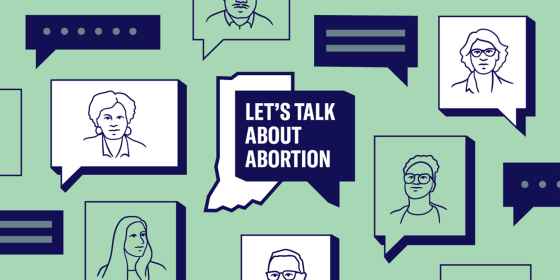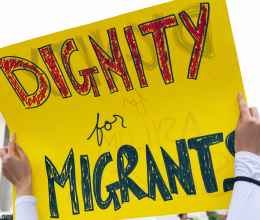The American Civil Liberties Union of Indiana and the National Immigration Law Center (NILC) recently filed a lawsuit on behalf of five Haitian immigrants who want to obtain an Indiana driver's license or identification card.
The federal government may temporarily admit a noncitizen to the United States “for urgent humanitarian reasons or significant public benefit,” under “humanitarian parole.” In recent years the federal government has authorized the entry of noncitizens from Afghanistan, Ukraine, Venezuela, Cuba, Haiti, and Nicaragua due to humanitarian crises in those countries.
H.E.A. 1050 is a new Indiana law, passed during the 2023 legislative session, that creates a pathway for individuals on humanitarian parole to obtain Indiana driver’s licenses or identification cards, but only if they are from Ukraine.
People on humanitarian parole from other countries could also benefit from being allowed to drive or obtain state-issued identification. The plaintiffs in the case, for example, are authorized to work in the United States, all hold steady jobs, and have to rely on others for rides to work. According to the complaint, the ability to drive is of fundamental importance in American society, particularly in cities and towns in Indiana where services are frequently dispersed and where public transportation is not always accessible.
The lawsuit claims that by allowing individuals from the Ukraine to obtain an I.D. but not permitting the same opportunity to Haitian refugees, H.E.A. 1050 represents national-origin discrimination.
The lawsuit claims that the new law is an unconstitutional violation of the Equal Protection Clause of the Fourteenth Amendment, that it is preempted by federal law as a result of the Supremacy Clause, and that it violates Title VI of the Civil Rights Act of 1964, 42 U.S.C. § 2000d, et seq.
“Our clients are being denied access to state-issued IDs solely because they are Haitians and not Ukrainians,” said Gavin M. Rose, ACLU of Indiana senior attorney. “Non-Ukrainians on humanitarian parole are left struggling to get to work, to keep medical appointments, to take children to school, and more, all because they cannot drive.”
“The federal government regulates immigration- not the states,” said Chiraayu Gosrani, an attorney with NILC. “The State of Indiana cannot create immigration classifications that conflict with federal law, and here they have done just that in an effort to unconstitutionally discriminate against people with humanitarian protections who are overwhelmingly immigrants of color.”




